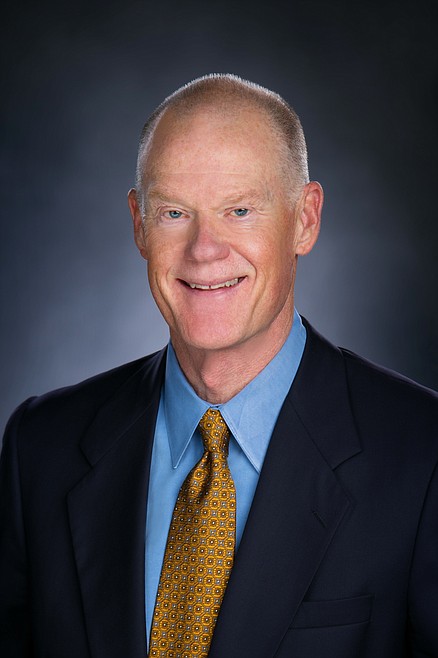'Disorderly conduct' now illegal in Coeur d'Alene
The Coeur d’Alene City Council voted to prohibit disorderly conduct Tuesday night in an effort to quell what police have described as an escalating atmosphere of violence related to the bar scene downtown.
“We worked with [the police department] to come up with an ordinance we think will give them a tool on the streets to deal with the conduct we don’t want to see happening,” city attorney Mike Gridley said. “At the same time, [we’re] giving our prosecutors the ability to take something to court.”
The changes came after Police Chief Lee White came to the council in February to ask for direction amid a rise in calls to select bars in the downtown area, particularly on Friday and Saturday nights. White said many of those calls — ranging from reports of fights to sexual assaults to drug possessions — can be traced back to alcohol abuse, and that the environment was becoming unsafe for his police officers.
The new law essentially changes what was previously on the books as Coeur d’Alene’s “Fighting” law, which only prohibited fighting in public. The new law, however, addresses the actions and events that build up to that fight, as its language indicates:
“It shall be unlawful for any person to knowingly engage in disorderly conduct within the city limits of the City of Coeur d’Alene,” 9.22.010 of the city’s municipal code now reads. “Every person is guilty of disorderly conduct when that person willfully engages in violent, tumultuous or offensive conduct, or by threatening, traducing, quarreling, or challenging to fight another person, or fights with another person in a public place; or makes noise that is unreasonable, considering the nature of the actor’s conduct, location, time of day or night, and other factors that would govern the conduct of a reasonably prudent person under the circumstances; or engages in violent, noisy or riotous behavior that would be frightening or offensive to a reasonable person who might be expected to be in the vicinity.”
The previous disturbing the peace law had hamstrung officers, as a legal loophole required that someone come forward as a victim, or that the offender actually disturbed the police officer’s peace. The updated law removes that obstacle.
“It’s frustrating for law enforcement to show up to a scene of a bunch of knuckleheads busting one another up — busting up property — and nobody wants to file charges against one another,” chief criminal deputy city attorney Wes Somerton said. “And yet, it’s a maylay in our community. It’s not acceptable.”
The amended language also updated the law to include “riotous” actions and “threatening” actions or statements.
While the council voted 5-0, not everyone was in favor of it. Councilman Dan Gookin, who was absent for the meeting, wrote on his Facebook page his opposition to the proposal, warning that it violates individual rights.
“Let's hope that Council considers their oath of office and represents the people tomorrow night, as opposed to just rubber stamping a staff decision,” Gookin wrote on Monday.
Richard Price of Coeur d’Alene spoke out against the proposed changes during the public testimony portion of Tuesday night’s City Council meeting, saying that the law hinges on the viewpoint of “reasonable people” and can be interpreted too broadly.
“Who decides what a ‘reasonable person’ is?” Price asked. “The police? The courts? Gosh forbid if we have to go to court for it.”
But Gridley said the standard of a “reasonable person” holds a time-honored place in the law, and that the “time, place and manner” standards do leave a flexibility commonly found in juris prudence.
“I will concede it’s not a decibel or scientifically measurable standard,” Gridley said. ”But it’s a community standard.”
Councilwoman Christie Wood, who retired from a long career in law enforcement, said the changes give the police the tools they need to deal with the problem without introducing new gray areas into the practice of policing.
“Law enforcement deals with hundreds of Idaho codes — hundreds — dozens of city ordinances they use to enforce, and they use their discretion every single day,” she said. “This wouldn’t be any different.”
Wood added that if the city is going to claim to protect the safety of its residents and visitors, those claims cannot be hollow.
“You’re going to have families coming off the lake with their little kids just trying to get a bite to eat and maybe get back to their car, walking through this zone of people who just have no regard for the safety of other citizens,” she said. “The body cam footage we saw was [people] initiating fights. We could deal with riots, property damage, and we already know, in this community, we have dealt with some really heinous crimes.”
Gridley said that, while interpretation and in-the-moment judgment of the police officers on the scene aren’t carved into stone, the community standards that inspired the changes in the law are grounded on a pretty simple principle.
“I acknowledge some of this isn’t black-and-white,” he said. “… Just don’t be a jerk.”

